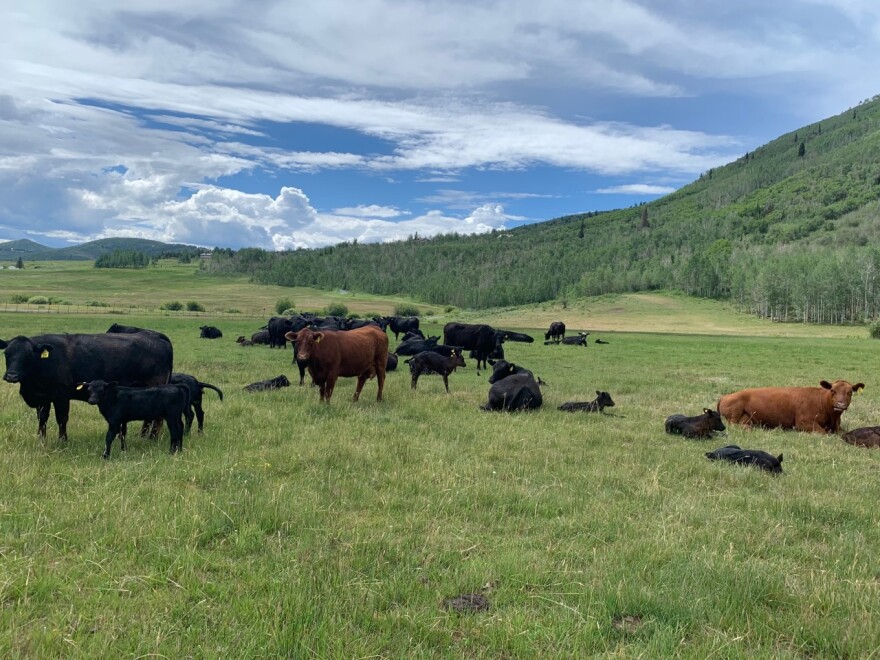It takes more than just using less water to conserve resources for farmers. They also have to consider things like soil properties, the types of crops they’re growing, and how to feed their cattle among many other factors.
McKinley Smoot is a rancher with a 150-acre lease in Peoa. He said he’s conserving water with a sustainable practice called mult-paddock grazing, which essentially constantly rotates cows in a small grazing area.
"What we're doing is, we are restricting our animals to go back to a certain plant multiple times within one grazing period," Smoot said. "So if you're moving those animals, in tighter conditions, like smaller paddock size, it forces them to act as herd animals, which is what cattle are."
He said this type of ranching allows the land to have rest periods between grazing. It also limits the amount that cattle can eat, creating a sense of competition among them.
"If you had 150 people around you and you had a banquet table, and I was like, 'Hey, this is what you're going to eat today,' you'd be a lot less selective, not going to just pig out on the sushi and the really nice things," he said. "So a cow, if they're put in that situation, they will become a lot less discriminate."
Smoot said animal manure and urine spread more evenly on a smaller area, potentially offering extra moisture for the grass to help things grow.
Bill White is a longtime Park City restaurateur. He owns and manages farms in the area and practices holistic land management. He looks at ecosystems on the land, including the water cycle, the carbon cycle and dynamics between organisms and the land.
While giving a tour of the McPolin Farm, White said he also practices multi-paddock grazing, and focuses on the nutrients his cattle get.
"I have 700 cows, and I only keep 60 here," White said. "I need the cows to recycle the nutrients, so I don’t need chemicals, right? As a rancher, if you're going to grow your own feed, don't sell it, you should have the cows that you feed it back to. And then you make your money off the animals."
He said he’s constantly looking for new ways to practice what he calls regenerative farming, investing in more efficient irrigation sources and organic ways to fertilize soil. He also plants cover crops, like pumpkins and squash, which help manage soil erosion, fertility and quality.
All of these practices tie back to water management. Healthier soil is better at retaining water and cover crops help shade and cool the land, slowing evaporation.
White said he’s not just practicing regenerative farming in preparation for the drought - he’s always using these practices.
"I say even when I run my businesses, you can't plan for the flying saucers to crash into the middle of Main Street," he said. "I mean, they could happen like COVID, right? You can't plan for that, you got to be aware of those risks. But also realize you have no control over things you have to manage like they don't exist. And we've always conserved water as a resource … we got into this to do better … before it was an issue."
Smoot said he practices progressive farming to help keep the land viable for future generations.
"They say every major decision you make ... you should say, is it going to make a benefit to your resource 100 years down the road? So it's kind of taking from the Iroquois nation from the east coast of like, every decision you make should benefit seven generations beyond yourself," he said.
In Utah and nationally, sustainable farming practices are becoming more commonplace. White and Smoot are also educators, and teach other farmers about what they’ve learned and how to apply it. Utah colleges and universities now receive state and federal funding for research and education programs centered on sustainable agriculture.




